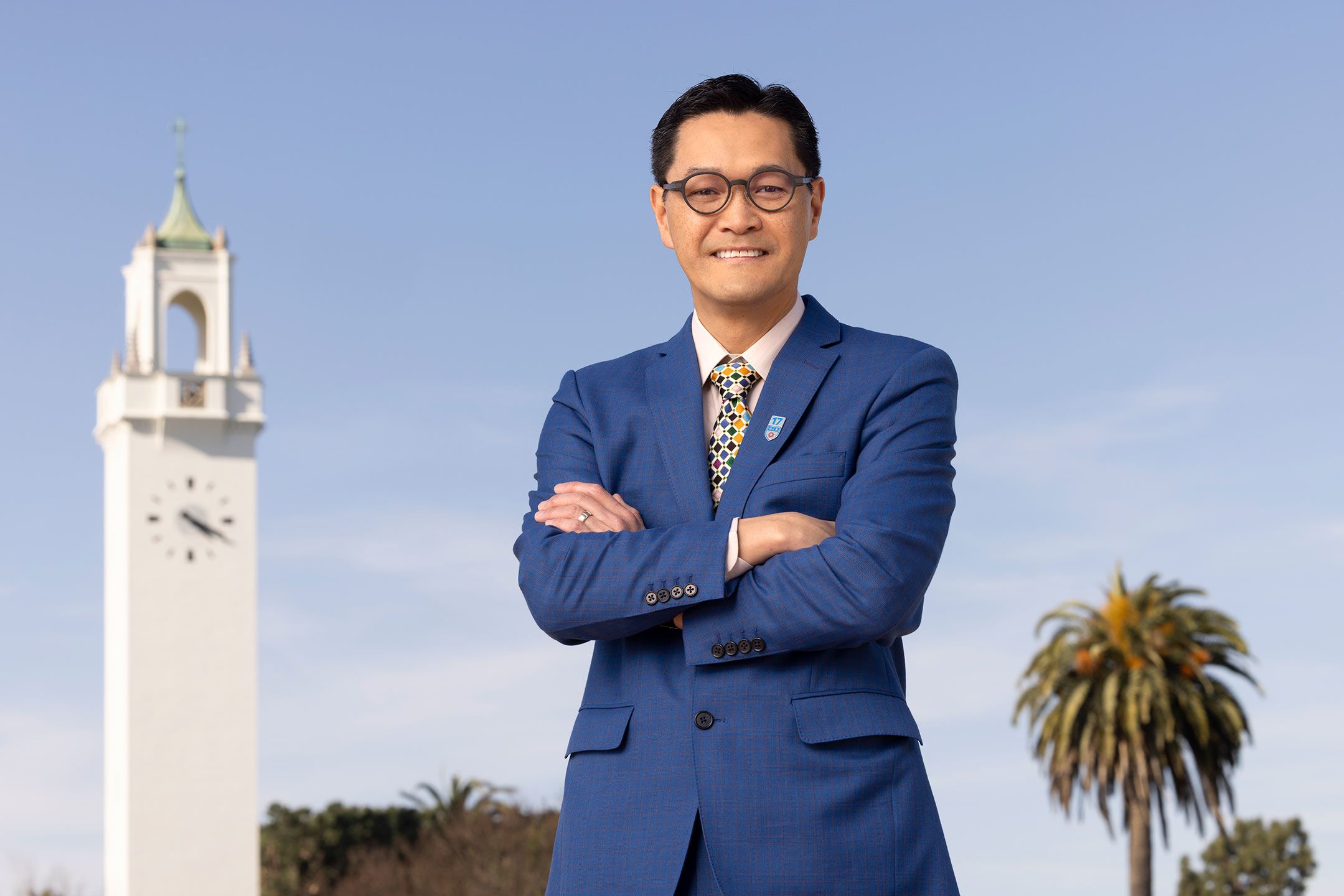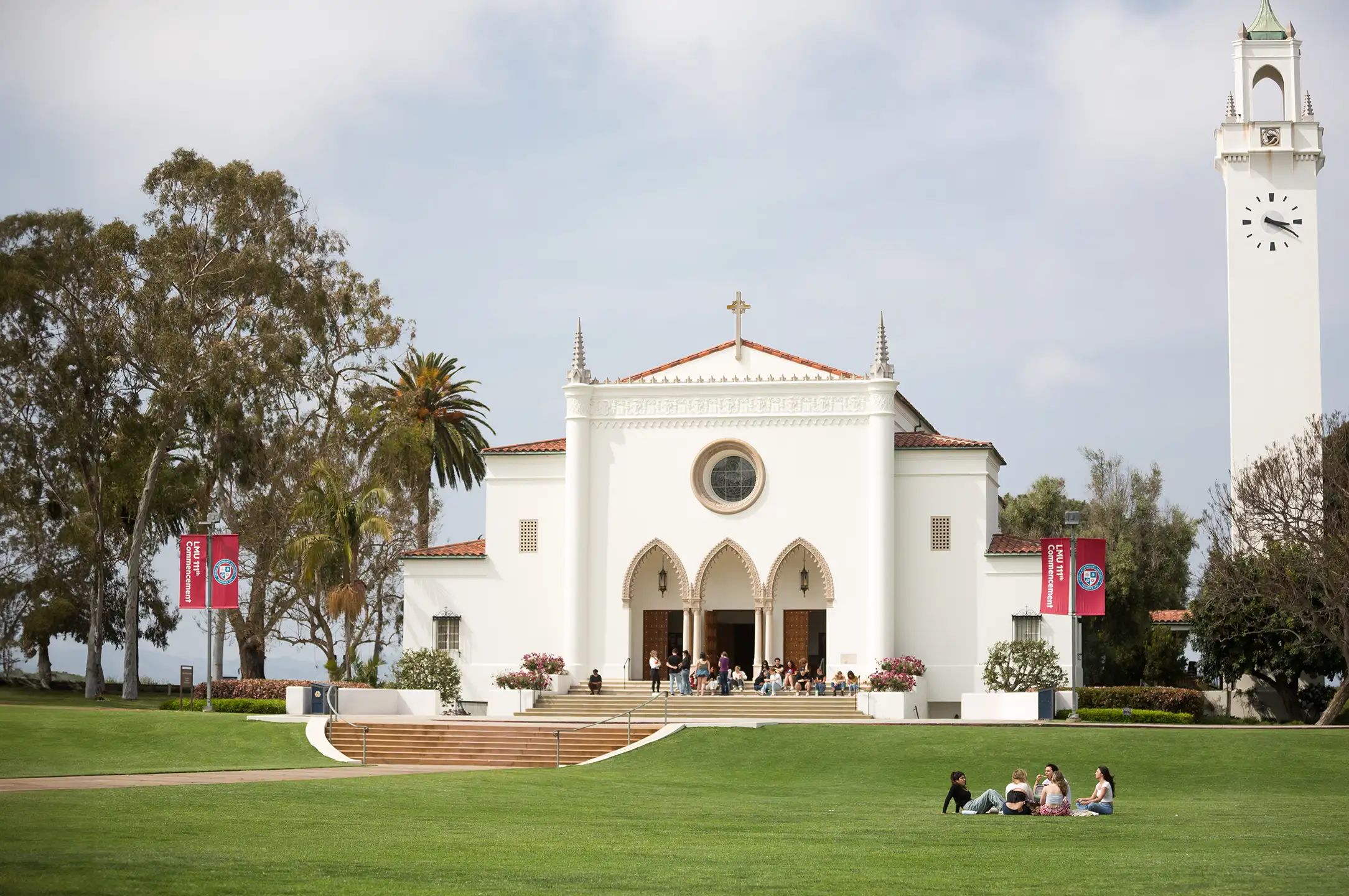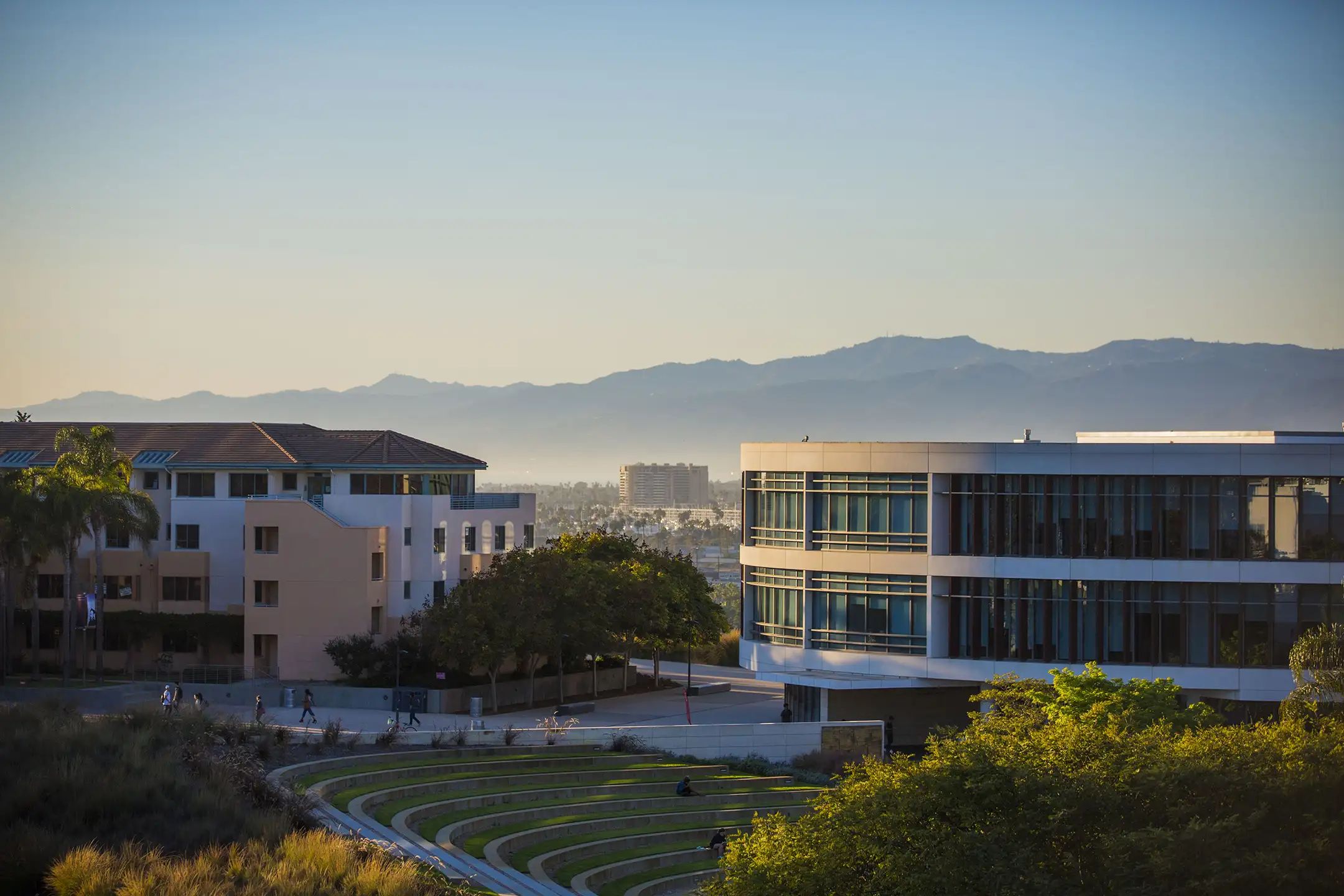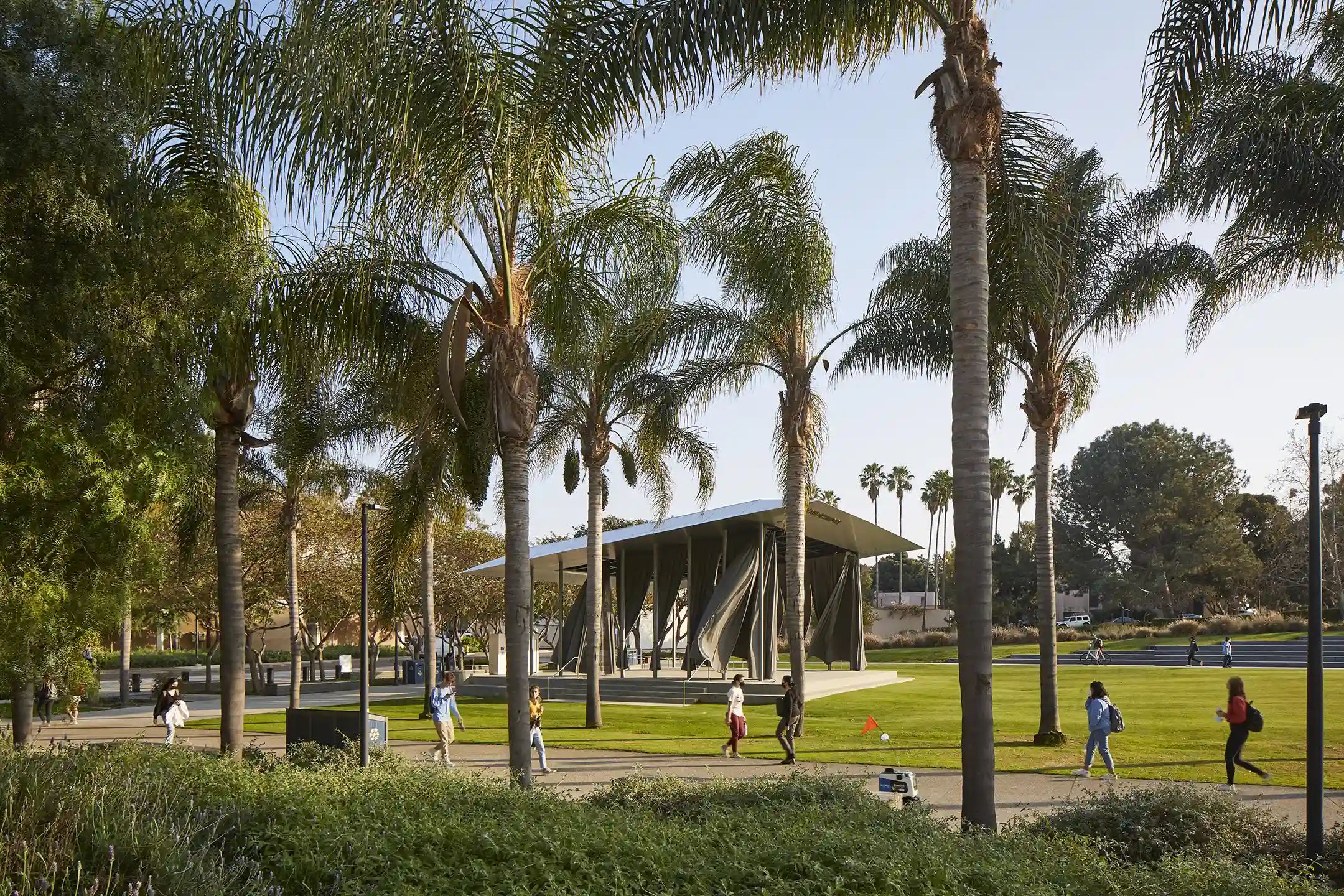Leadership for a Defining Moment:
Thomas Poon Is Loyola Marymount’s 17th President

As colleges and universities look to renew trust, expand access and navigate a rapidly changing world, Loyola Marymount University is turning to a leader who embodies both scholarly distinction and deeply rooted values. On June 1, 2025, Thomas Poon, Ph.D., a first-generation college graduate, organic chemist and longtime academic leader, will become LMU’s 17th president.
Poon’s appointment signals the university’s commitment to bold, purpose-driven leadership amid a rapidly evolving higher education landscape. Known for his collaborative style and vision for education that transcends the classroom, Poon sees LMU’s Catholic, Jesuit and Marymount mission not only as a foundation but as a catalyst. At the heart of that mission is LMU’s well-rounded education rooted in the humanities and social sciences—disciplines that encourage students to think critically and act with empathy. At a time when higher education faces growing cynicism, polarization and pressure, he believes LMU’s values are precisely what the moment demands: unflinching commitment to human dignity, justice and the common good.
“In President-elect Poon, LMU gains a leader of wisdom, creativity and vision,” says Paul Viviano, chair of the LMU Board of Trustees. “Together, we will write LMU’s next chapter— rooted in mission, inspired by purpose and animated by hope.”
That alignment with LMU’s mission is central to Poon’s vision.
“Because of our university’s faith traditions, we have distinctive responsibilities,” Poon says. “Our values give us the freedom and foundation to push back when necessary—and to lead with integrity, no matter the climate. This mission isn’t abstract. It calls us to act, boldly, visibly, and with purpose.”
Poon has served as LMU’s executive vice president and provost since 2017, shaping one of the most transformative academic chapters in the university’s recent history. Under his leadership, LMU secured its first Carnegie Classification of Institutions of Higher Education R2 designation for high research activity, marking a national leap in academic reputation, while launching 21 academic programs in high-demand fields such as business analytics, education leadership and computer science. Under his leadership, LMU expanded faculty diversity and earned federal recognition as both a Hispanic-Serving Institution (HSI) and an Asian American and Native American Pacific Islander-Serving Institution (AANAPISI), a distinction held by few Catholic universities.
LMU is deeply woven in the creative, cultural and economic fabric of Los Angeles and home to top-ranked programs in law, film and television, entrepreneurship and the arts. The university generates $1.4 billion in annual economic impact nationwide and supports more than 10,000 jobs, including $462 million annually in Los Angeles County alone.
Recognizing LMU’s unique position in the world’s creative capital, Poon helped launch the development of LMU’s Playa Vista Campus in the heart of Silicon Beach, expanding opportunities for students and faculty to engage directly with the region’s tech, innovation and entertainment sectors. He also launched the Global Conversations speaker series, which brings leading voices from across industries and disciplines into dialogue with the LMU community.
Poon’s efforts have been defined by what he calls LMU’s teacher-scholar model, which emphasizes both rigorous research and meaningful student engagement. “Our professors aren’t just researchers, they care deeply about their teaching,” he said. “That dual commitment means our students are not only receiving academic excellence, they’re part of a community where faculty mentorship and small-classroom interaction are the norm—not the exception.”
That synthesis sets LMU apart from many larger institutions where meaningful faculty-student interaction can be elusive. “You can be the most brilliant teacher in the world,” Poon said, “but in a 500-student lecture hall, you simply don’t have the same opportunity to connect.”
Poon’s own academic path began at Fairfield University, a Jesuit institution in Connecticut. He went on to earn his Ph.D. in chemistry from the University of California, Los Angeles. Poon served in academic and executive roles at Pitzer College in Claremont, Calif., including interim president, before joining LMU in 2017. His research, supported by the National Science Foundation, included pioneering work in molecular synthesis and science education. One of his most publicized discoveries? Identifying a chemical compound in the sweet gum tree—ubiquitous in American suburbs—that could serve as a base for Tamiflu, the antiviral influenza medication.
His integrative leadership style will continue to shape his approach as he assumes the presidency at the nationally ranked and largest Catholic university on the West Coast.
“I’ve served under or alongside 16 different university presidents,” Poon said. “I’ve seen all styles—from top-down authority to consultative, relationship-centered leadership. What I’ve learned is that trust matters. Engagement matters. And how you invite people into decision-making shapes not only morale but outcomes.”


Watch LMU Trustee Chair Paul Viviano’s Announcement announcing LMU's 17th President, Thomas Poon, PhD.

As he assumes the presidency, Poon is focused on a set of interconnected goals: enhancing LMU’s national visibility, expanding what he calls transcendent education experiences, achieving greater mission distinction and securing the resources necessary to empower—not just sustain—the university’s future.
“Being fiscally sustainable means surviving. Being fiscally empowered means thriving,” he said. “It allows us to invest in bold ideas, extend access and elevate the student experience in ways we all envision.”
Among those bold ideas: expanding LMU’s public-facing partnerships in Los Angeles’s business, civic and cultural sectors.
Poon also plans to expand LMU’s global footprint, leveraging its location in a global city to deepen international engagement and student mobility. “We are surrounded by opportunity—Silicon Beach, Hollywood, international consulates, cultural power centers,” he said. “We have to be in those rooms and at those tables, even more so than we already are.”
That outward engagement, he emphasizes, must be grounded in inward purpose. For Poon, this means a leadership approach rooted in the reflection, discernment and service that define the Ignatian tradition.
Over the years, he has participated in LMU’s Ignatian Colleagues Program, completed the 19th Annotation of the Spiritual Exercises and developed a daily habit of reflection. A marked-up copy of St. Ignatius’ Own Story—given to him by LMU’s chaplain—sits on his conference table, alongside a clean copy to pass on.
“We honor the legacy of those who came before us,” Poon said, “but we also must build for those who come after us. We don’t just serve this generation. We’re shaping the future for generations we’ll never meet.”
That belief, he said, will shape everything from strategic priorities to campus culture. “This isn’t about any one person. It’s about what LMU can be in the world, together.”
This custom content is sponsored by Loyola Marymount University and developed by Inside Higher Ed's sponsored content team. The editorial staff of Inside Higher Ed had no role in its creation.



